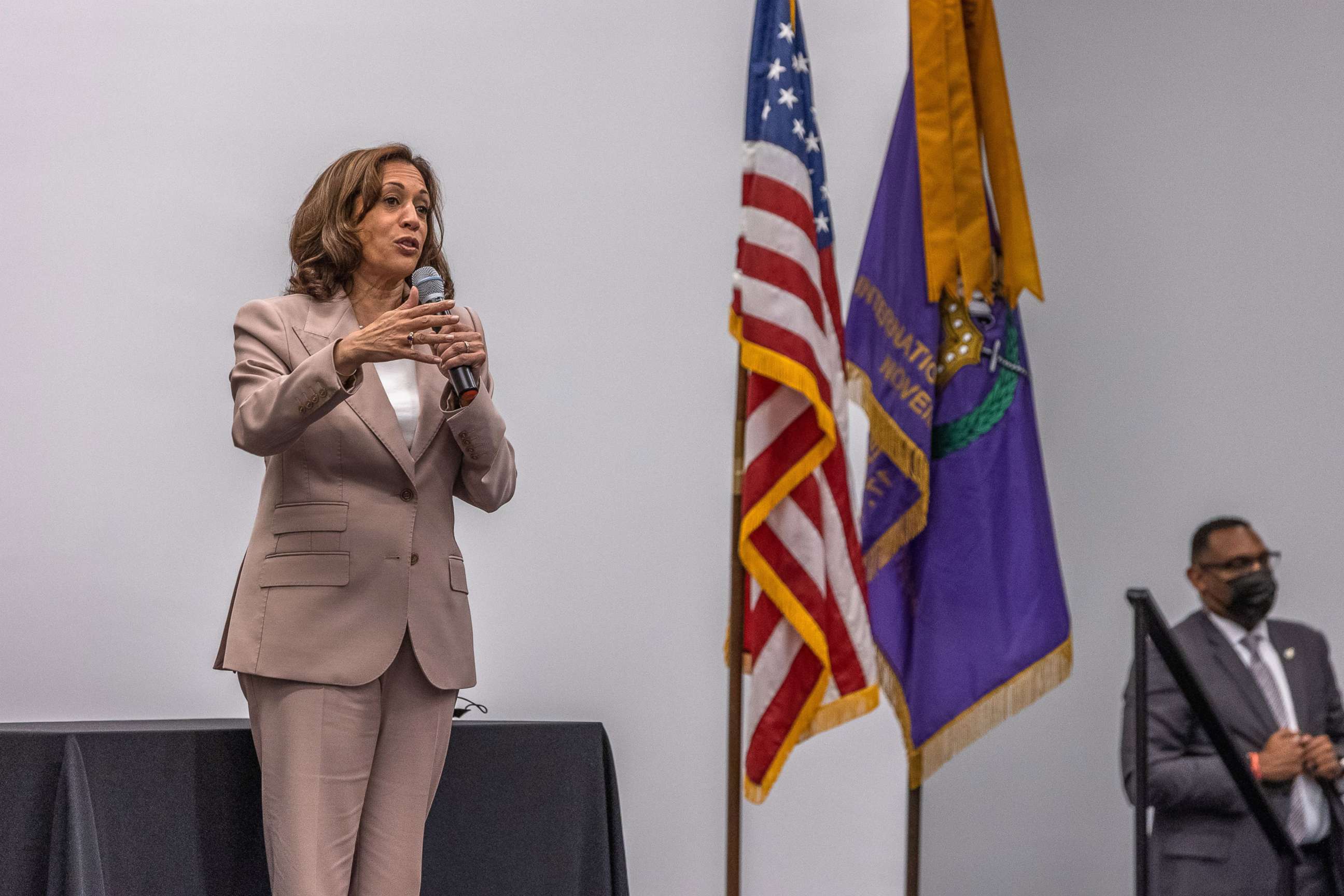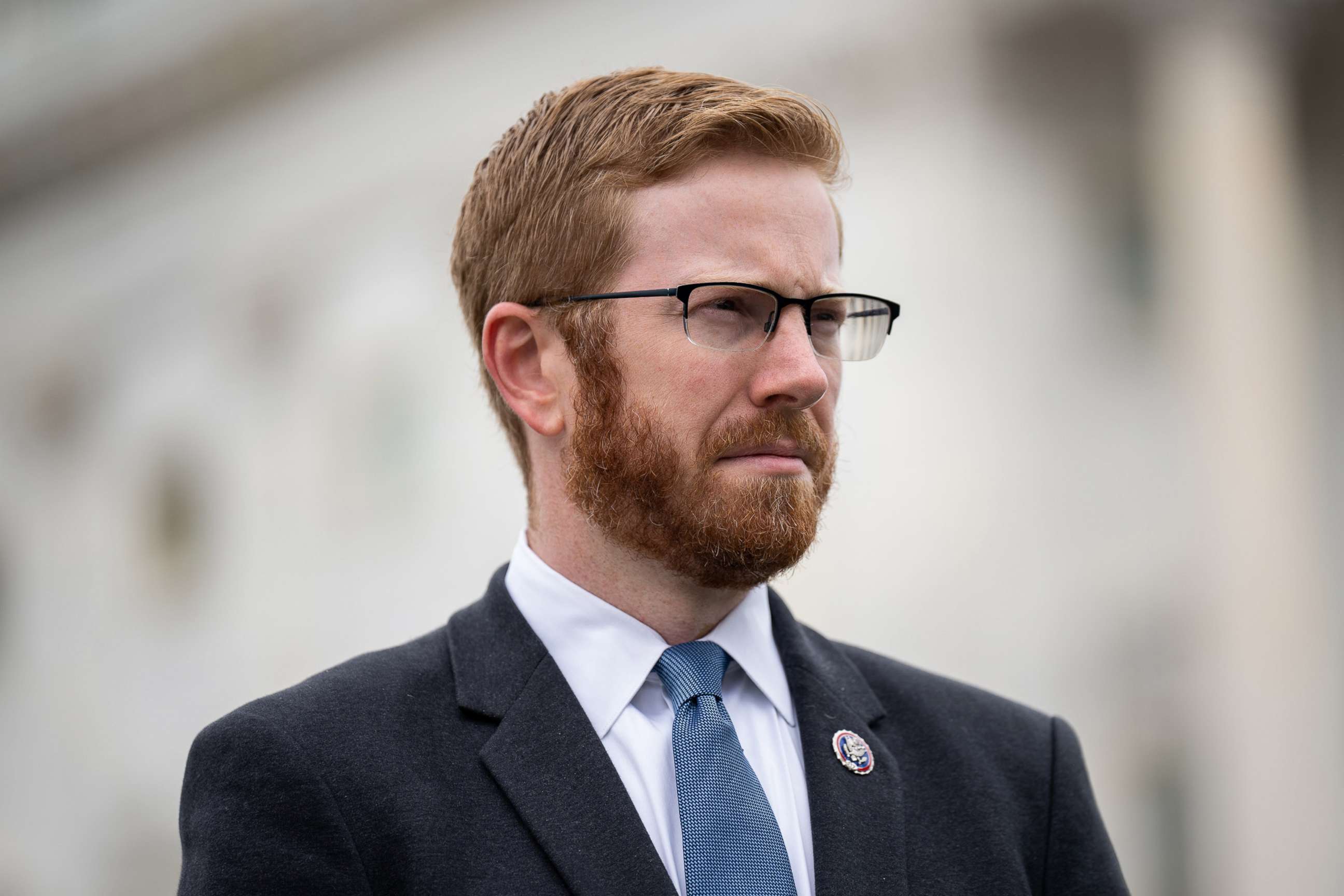Trump returns to Washington scene that still tips toward him: The Note
Donald Trump is giving a speech in Washington, D.C., on Tuesday.
The TAKE with Rick Klein
For the first time in 18 months, Donald Trump is giving a speech in Washington, D.C., on Tuesday.
He's back as a former president -- at a moment, coincidentally, when his vice president is also in town, and while the current president is sidelined with COVID-19. Trump is expected to give the closing address at the America First Policy Institute's (AFPI) America First Agenda Summit.
Trump is not alone in speaking about the future of the Republican Party, either this week or more broadly this summer and in the months before the midterms. Notably, he's also nowhere near done speaking about the past.
That's clear from the campaign rallies he's organizing and the candidates he's organizing them for, the vast majority of whom are campaigning on falsehoods about the 2020 election.
Trump long ago left Washington, but Washington Republicans haven't quit him. Those preceding Trump's speech at the America First Agenda Summit on Tuesday include former House Speaker Newt Gingrich and a possible future speaker, House Minority Leader Kevin McCarthy.
As for other visions of the future, with possible 2024 contenders speaking at a wide range of summer events, even boilerplate prescriptions for the GOP's future can be read with a certain edge.
"Some people may choose to focus on the past -- but I believe conservatives must focus on the future," former Vice President Mike Pence planned to say Monday at a Heritage Foundation event he wound up being unable to attend, in advance of another speech he's giving Tuesday in Washington.
Pence's own time in D.C. comes just days after his former chief of staff appeared under subpoena before a federal grand jury investigating Jan. 6, per ABC News' Katherine Faulders. And more information about what Trump wouldn't say in the immediate aftermath of the attack continues to come out via the Jan. 6 committee.
The RUNDOWN with Alisa Wiersema
Vice President Kamala Harris' trip to Indiana on Monday came at a critical juncture regarding the national debate over abortion access and the continuing fallout over the Supreme Court's reversal of Roe v. Wade.
"Indiana is the first state in the nation after the Dobbs decision to hold a special session where they have proposed legislation that will essentially and effectively ban access to abortion for the women of this state," Harris told reporters on the tarmac after landing in Indianapolis.
Legislation proposed by Indiana Senate Republicans would ban all abortions in the state from the moment of conception, with exceptions for rape, incest, threats to the health of the mother, or due to fatal fetal abnormalities. The special session addressing the proposal is slated to run through Aug. 14, and Indiana Democrats have few options to block its passage.
Prior to Harris' visit, Indiana was already grappling with the aftershocks of the Court's decision, when a 10-year-old girl whose pregnancy resulted from rape, traveled from Ohio -- where her pregnancy was beyond the six-week timeline -- to receive an abortion in Indiana.
The doctor who treated the girl was subsequently targeted by Republican State Attorney General Todd Rokita, who launched an investigation into whether proper paperwork was filed surrounding the procedure. In response, the doctor filed a tort claim notice against Rokita saying he defamed her. An attorney representing Dr. Caitlin Bernard said she followed reporting procedures, and Indiana University Health said an investigation found that she was in compliance with privacy laws.
The political ripple effects of Roe v. Wade will continue to surface across the Midwest in next week's primary elections in Kansas -- one of the states where abortion remains available in the country. Voters will decide whether to advance a proposed amendment that seeks to end abortion as a protected right in the state's constitution, while also casting ballots for gubernatorial candidates who have opposing views on the issue.

The TIP with Hannah Demissie
Democrats are at it again when it comes to meddling in the primaries.
The Democratic Congressional Campaign Committee released a new ad linking Michigan House candidate John Gibbs to former President Donald Trump ahead of his primary against Rep. Peter Meijer, R-Mich.
In the ad, Gibbs is branded as "too conservative" for west Michigan, and the video highlights his ties to Trump by discussing his work in the former president's administration.
Meijer is one of 10 Republicans who voted to impeach Trump in 2021 over the attack on the Capitol. However, following redistricting, Meijer's district is friendlier to Democrats as they work to maintain their majority in the House.
The tactic of Democrats interfering in GOP primaries in the hopes of lifting the prospects of a candidate they view as less electable to go against the Democratic nominee has played out in other states, such as in Illinois and Maryland Republican gubernatorial primaries where State Sen. Darren Bailey and State Del. Dan Cox both won their primary races.
However, the strategy has had mixed success elsewhere and does not guarantee victory for Democrats in November.

NUMBER OF THE DAY, powered by FiveThirtyEight
18. That's the difference between President Biden's net approval rating (-19 percentage points) and where Democrats currently stand on the generic ballot (-1), or in polls that ask voters which party they'd back for Congress. But as FiveThirtyEight's Nathaniel Rakich writes, even though this difference is large, it isn't unusual. In fact, it's possible that Democrats' midterm chances won't actually hinge that much on Biden's approval rating.
THE PLAYLIST
ABC News' "Start Here" Podcast. "Start Here" begins Tuesday morning with a deep dive on monkeypox, and a patient diagnosed with the infection talks about his experience. Then, ABC's Marcus Moore reports from Alberta, Canada, after Pope Francis apologized to the Indigenous community over the Catholic church's role in the generational abuse at residential schools. And, ABC News' Trish Turner explains the new battle for same-sex marriage on Capitol Hill to counter the Supreme Court. http://apple.co/2HPocUL
WHAT YOU NEED TO KNOW TODAY
- President Joe Biden meets virtually with the chairman and principal owner of the Republic of Korea (ROK) conglomerate SK Group at 2 p.m. ET.
- The president virtually joins the House Bipartisan Disabilities Caucus' celebration of the 32nd anniversary of the American Disabilities Act at 5 p.m. ET.
- The White House hosts a summit on the "next generation" of COVID-19 vaccines starting at 11 a.m. ET.
- The Senate Judiciary Committee holds a hearing examining how to protect law enforcement while they serve starting at 10 a.m. ET.
- The Senate Committee on Health, Education, Labor and Pension holds a hearing examining the fight against fentanyl and the federal response at 10 a.m. ET.
- White House press secretary Karine Jean-Pierre and National Economic Council Director Brian Deese hold a briefing at 3:15 p.m. ET.
- Former President Donald Trump will deliver the closing address for the America First Agenda Summit starting at 3 p.m. ET.
- Former Vice President Mike Pence will give remarks at the Young America's Foundation convention starting at 9 a.m. ET.
Download the ABC News app and select "The Note" as an item of interest to receive the day's sharpest political analysis.
The Note is a daily ABC News feature that highlights the day's top stories in politics. Please check back Wednesday for the latest.




